This post shares how a long-term, mindful tea practice might help with equanimity in tough times.
For some weeks, I’ve felt like the volume has been turned up whenever I feel sadness or frustration. I still feel other emotions–even good ones–but they don’t feel amplified like the sad ones recently. Given my emotional state, my reaction in the face of a recent disappointing outdoor tea session was hard to explain. But, let me try. I think it speaks to the grounding magic and support of having a regular tea practice.
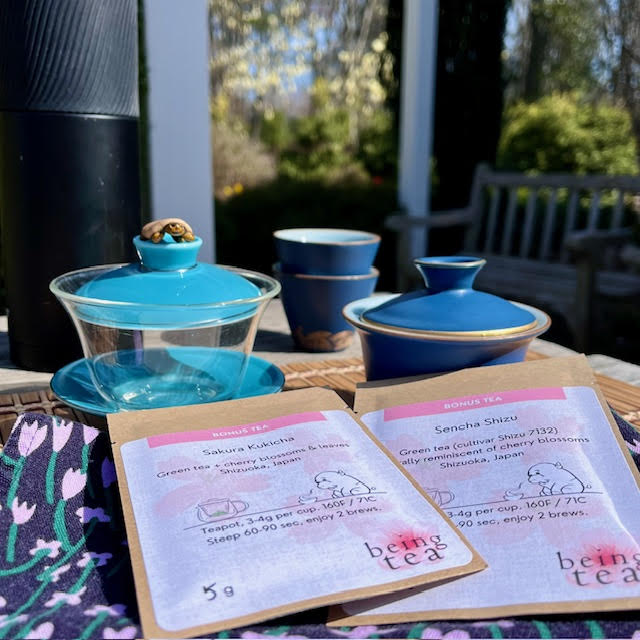
Taking My Tea to the Garden
Like I have done dozens and dozens of times, I packed up two teas to enjoy at my local botanical garden. These teas both have connections to cherry blossoms (sakura) and I was saving them to compare to each other and to drink near cherry trees. I took the Sakura Kukicha and the Sencha Shizu from the March Being Tea Tasting Box.
Somehow, I didn’t pack all the usual equipment for my tea practice. When I realized it, I didn’t feel frustrated–to my surprise. I did pack two tea cups, as I have done for some years now, after my Tea in the Canyon experience.
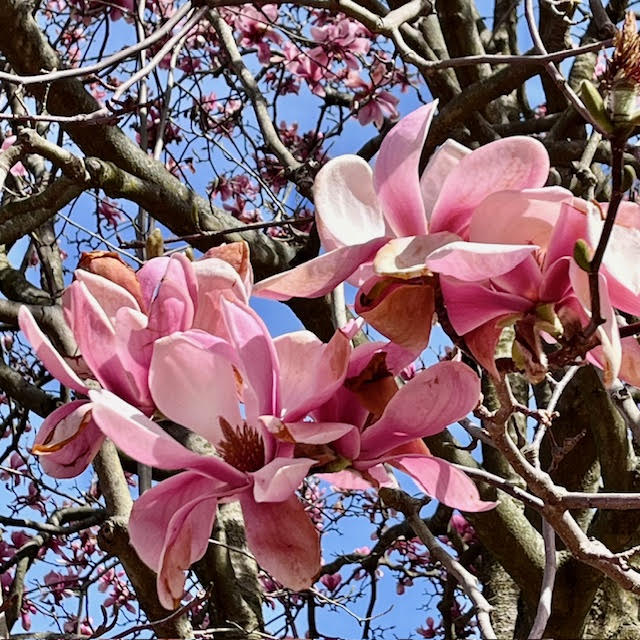
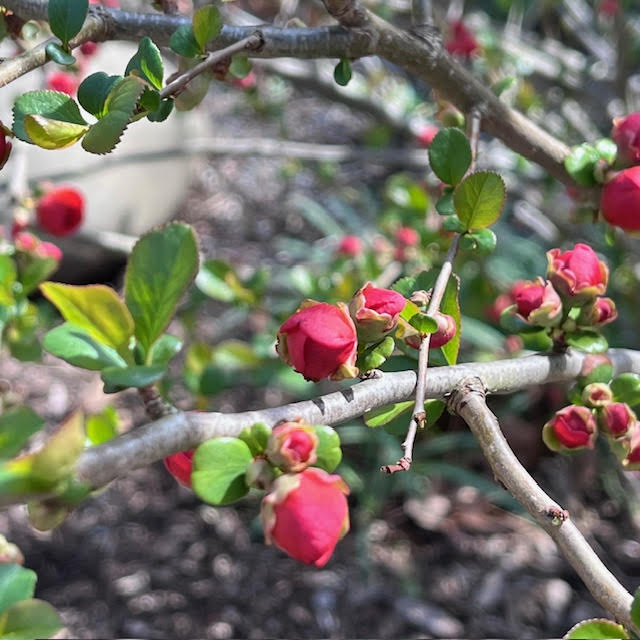
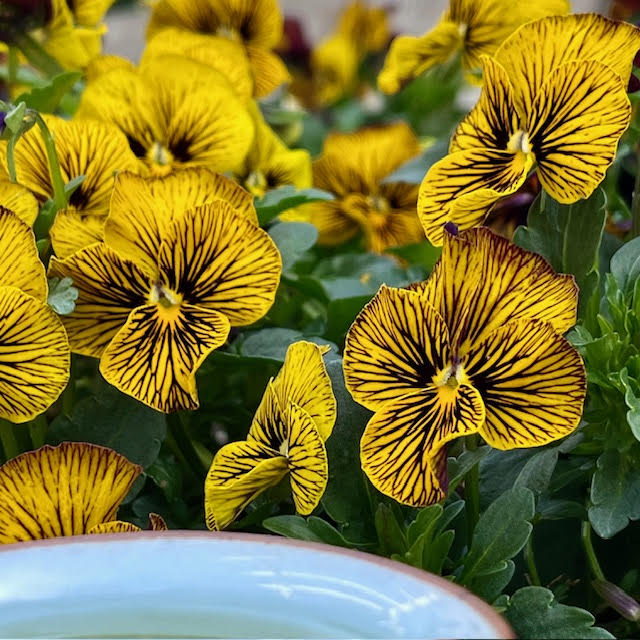
There were, surprisingly, no cherry trees in the part of the garden where I wanted to sit at a picnic table. There were magnolias and plum trees nearby, and some beautiful pansies and other blooming things. I didn’t feel disappointed or frustrated. I surprised myself by that, too.
Then, because I didn’t pack my thermometer and miscalculated the water temperature in my thermos, I steeped the first tea (the kukicha) too hot and it brought out a sharp bitterness on top of the floral and other notes. I usually hate green teas brewed too hot, but I didn’t really mind. I was able to find the beauty in the floral notes.
Equanimity Finds Me
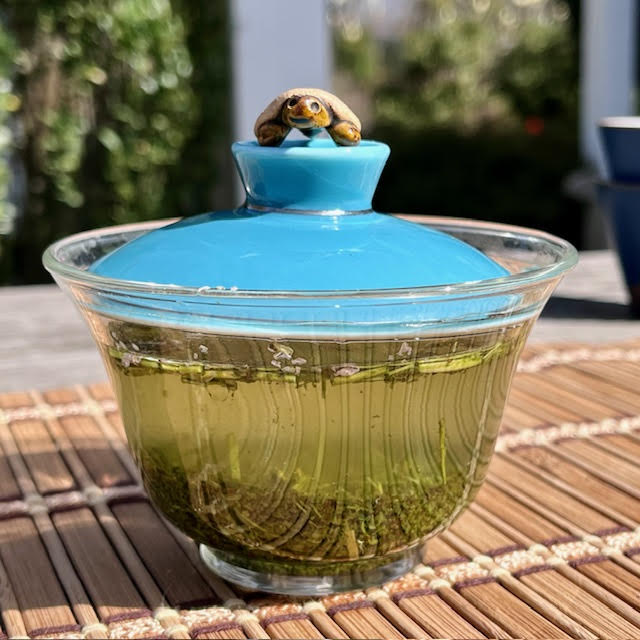
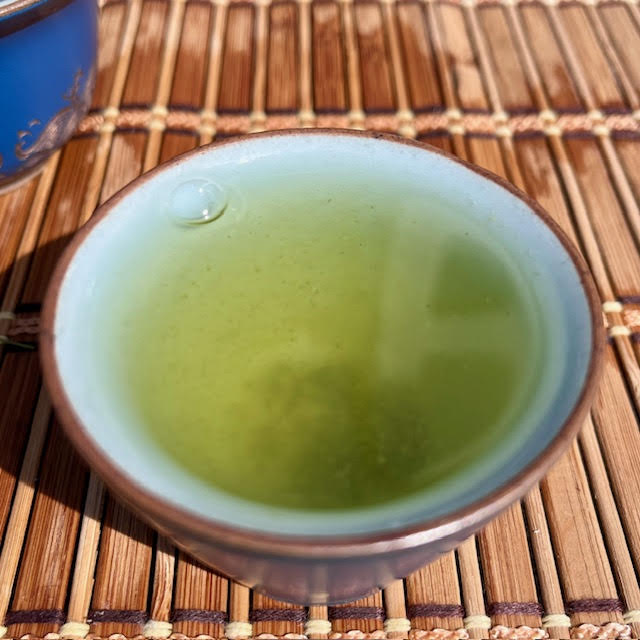
I managed to steep both teas. The over heating unexpectedly amped up the sakura notes in the Sakura Kukicha. That also surprised me. I would have guessed that the over-heated green tea would block out the cherry blossom notes. Since the cherry blossom notes were so prominent, I could detect the way the Sencha Shizu–though not scented with sakura–had notes of cherry blossom. Lovely. I thiroughly enjoyed the sencha. I’m sure I would have loved the kukicha if I hadn’t steeped it so hot. I actually wonder if I would have so clearly detected the sakura note in the sencha if I hadn’t overheated the kukicha.
As I started to pack up, I dropped one of the teacups in my traveling gaiwan set onto the bricks beneath the picnic table. It cracked pretty neatly in two. I was surprised how calmly I took it. I didn’t feel the waves of sadness or anger I often feel when I accidentally break a piece of my teaware. Equanimity was accessible to me in a way that felt new and important.
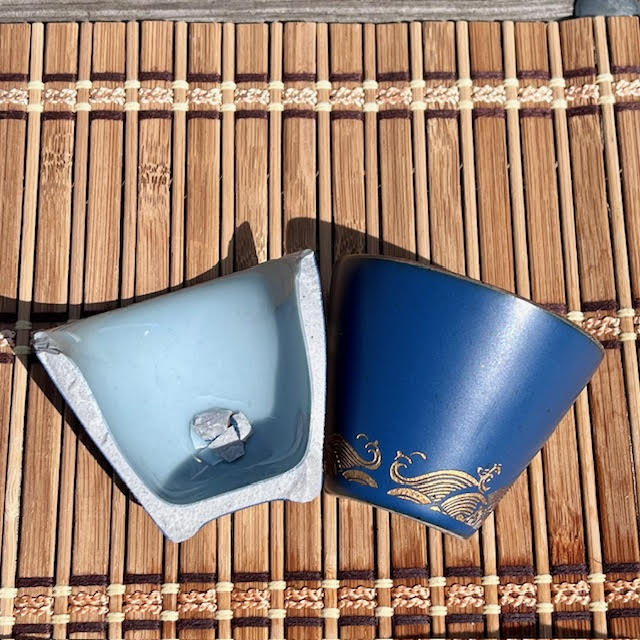
In between these tea mishaps, the birds sang, the wind blew the blossoms in the magnolia trees, and it smelled like blooming things. I held my warm teacup and occasionally sipped these two green teas. I felt the quiet joy of teatime in such surroundings.
Tea Connections & Grounding
I remembered having tea in this same spot over a year earlier, in deep grief right after a dear friend passed away. I remembered, too, the gorgeous cherry trees in my grandparents’ back yard when I was growing up. Again, I held my warm tea cup, and sipped the two teas. I felt supported and grounded. The tea was there for me. I was hugging the cup in my hand, and the tea was hugging me back.
It’s hard to say for sure, but I really believe that if I hadn’t been having regular, mindful tea sessions for years that this whole outing would have felt sad, disappointing, and frustrating. Instead, I felt the happy parts and was able to muster equanimity in the face of the mishaps.
With more practice, I hope to bring even more of that tea practice equanimity into the rest of my life.
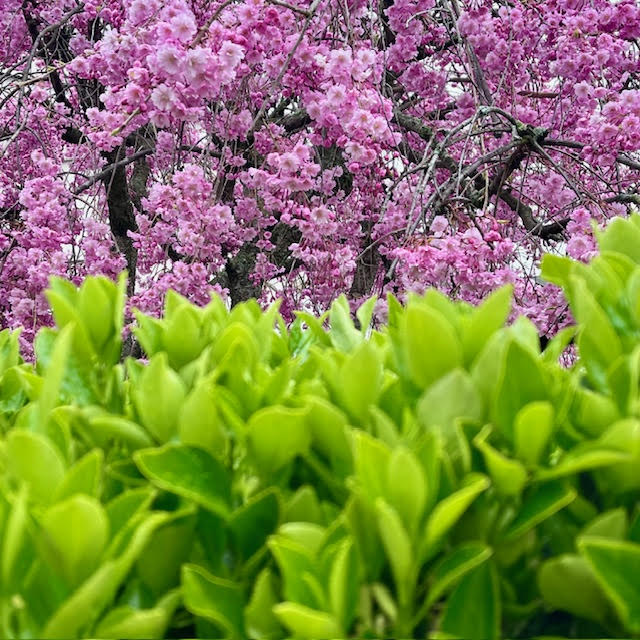
When I returned home and realized that the neighbors on each side of our house have a blooming cherry tree, I smiled.
No regrets about my session that didn’t include cherry trees beyond the petals in one of the teas, a beautiful flavor note in the other, and my memories of childhood. Just gratitude.
